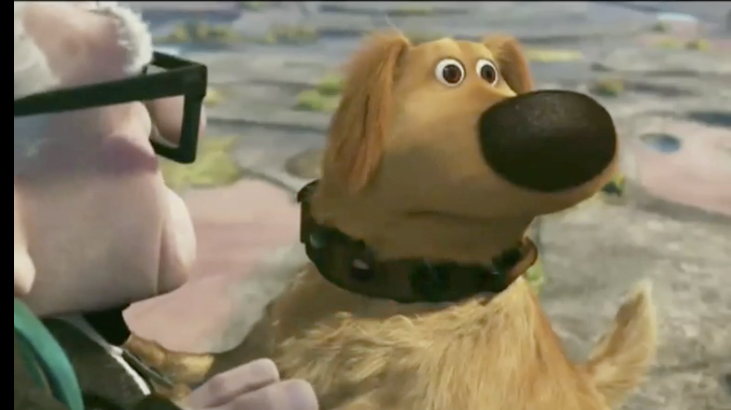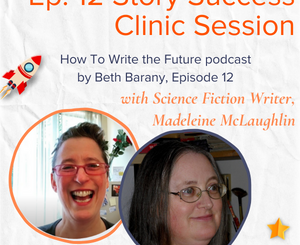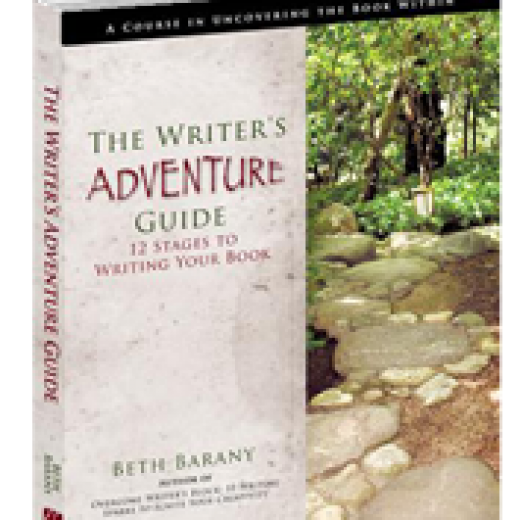The Universal Key to Success: Focus
 This post is #4 in a series on Artist Entrepreneur Success on what it takes to succeed in business as an artist-entrepreneur.
This post is #4 in a series on Artist Entrepreneur Success on what it takes to succeed in business as an artist-entrepreneur.
That’s right, folks: Focus!
Many people think that they need a proper plan, that they need to know all the steps to get where you’re going. But actually you just need to pay attention to that one thing that will make all the difference — today.
I don’t know about you but I have lots of projects going, all at various stages. Some are mine, some are my clients. And the only way I can get anything done is if I focus on ONE thing to the exclusion of all else for a period of time.
When I write a blog post, I’m writing, when I edit a client’s manuscript, I’m editing, when I’m on a client call, I listen and take notes.
Except when I’m not.
I confess — my mind goes a million miles a minute. So I need: Tools for Focus.
Tools for Focus
If you just use a few simple focusing tools and build your Focus muscle, you too can harness your innate ability to get stuff done! Deliver your product to your client. Turn your manuscript in on time. Complete the next integral part of the design. Yeah!
One of the tools I use is to WRITE IT DOWN.
That’s why I have a notebook (beloved Moleskin) at my side to capture whatever loose thoughts are rattling in my brain.
Another tool is the TIMER. (Yep, like now… I set the time to crank this post out.)
Why these tools for focus?
I think it’s because we creatives are very curious. And as entrepreneurs we see opportunity at every turn. We have curiosity times two — both as artists and as entrepreneurs! Curiosity is great for being adventurous, but challenging and distracting when we want to stay the course.
With curiosity, everything is so interesting to us. Like the dog in Up! — we see possibilities everywhere — Squirrel! — we have to mentally corral ourselves. But too much corralling can lead to creative paralysis, so I suggest a third tool:
A Wish Box.
Inspired by Twyla Tharp’s notion that we gather our creative projects in a box, I gather my ideas that I don’t have time for in my filing cabinet under: “Story Ideas” or “Event Ideas” or “Future Projects.”
I give my crazy and wily ideas a place to land, to feel safe, at home, if just for a time. Then I put my focus back on the current project. Then once every few months or at least once a year, I flip through these folders. I toss what no longer appeals, see if I want to put any of these projects front and center for te coming year, and file the rest if they still grab me.
Penultimately, there is another tool that I see a lot of creatives use that really seems to work well:
Deadlines.
I was talking with my younger brother the other day about his concert in April where his original work will be performed. This concert is his college department’s version of a senior thesis. How’s it going? I asked him. He admitted that he wasn’t as far along in composing as he’d like to be. I suggested gently that he fix a date of completion of the very next step and call me. Better yet, I asked him to write down his commitment in my notebook and call me when he accomplished it. So he wrote “to finish ‘Lower 9th’ arrangement” for this coming Sunday. I have it here in black and white in my Moleskin. Then he wrote it in his notebook. Smart brother! And just because I’m a professional coach, I’ll expect a call from him. And because I’m his sister and a professional I’ll text him if I don’t hear from him.
Which brings me to my last tool for Focus:
Consequences.
Some people are motivated by what might happen if they don’t get their project done. I admit that I am one of them. And so are many of my clients. When I started working with Mark, a busy executive and founder of a start up, to help him get writing and establish himself as a thought leader in his field of influence, I asked him, “What are the consequences of not writing as you have declared you would?” He declared that he would do 20-minute timed writing 2-3 times a week. He said to me, “I’ll have to think about that.” And smiled. After a few moments of thought, he admitted that he would feel let down as a consequence of not following through. And that was incentive enough to keep him on track.
What tools for focus do you use? What works? What works the best for you?!
I’m curious to hear how you stay focused!
Have a Happy and Productive Week!
PS. Thanks to Bryan Franklin executive coach extraordinaire for reminding me about the power of focus!







